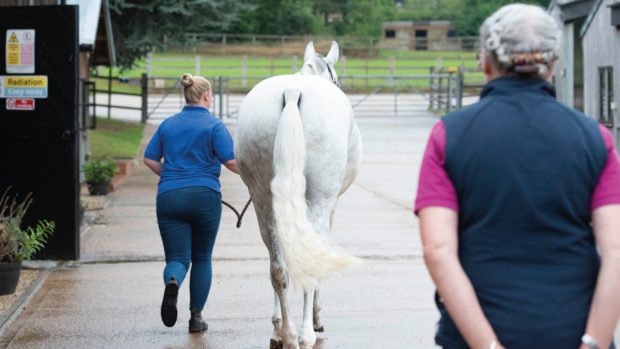The insurance costs facing equestrian establishments have increased drastically in recent years as society becomes ever more litigious, says the BHS, which met Defra minister Alun Michael yesterday along with the Association of British Riding Schools (ABRS) and representatives of the insurance industry to discuss the extra burden of insurance premiums facing riding establishments.
Similar concerns have been voiced at various stages recently, but not until yesterday was the matter officially discussed. The seriousness of the issue has come to light in the wake of the horse industry’s Sounding Board last month, when BEF Chief Executive Andrew Finding stressed that the horse industry must focus on “widening the base”.
Riding Establishments
Although the BHS was unable to confirm the precise figures, more than a fifth of riding establishments are thought to have closed down in the last 10 years, principally as a result of spiralling running costs, with insurance premiums virtually doubling since 2002.
“In an industry operating on such tight margins,” says the BHS, “premium hikes can mean the difference between solvency and failure.”
This has led to concerns that the UK could eventually be deprived of top-level competitors as the grass roots are gradually eroded.
Duncan Brown of the ABRS, says that increased running costs at riding establishments are not entirely down to insurance premiums, but that these do have a large part to play:
“Insurance is a major problem for other sports as well, as participants are simply not accepting the risks inherent to the activity. Riding schools are not hugely profitable, and the collective impact really does make the difference between sinking or swimming.”
The closure of Suzanne’s Riding School, the country’s longest-running riding school, in March was widely considered to be linked to the increasing insurance costs.
At the time, chief instructor at the establishment, Julian Marczak explained that it was “an enormous decision, but riding schools are going through a tough time: overheads are increasing – especially through public liability insurance costs and business rates.”
Tack shops
But “blame culture” is not limited to riding schools: it has extended its roots into the world of equestrian retail.
Saddlers and retailers face enormous legal bills if they are not properly covered by insurance, which is increasingly causing financial problems, particularly for smaller businesses.
The “blame culture” in which we live is said to account for the fact that many insurers are refusing to take on the risk of covering companies which face huge legal costs if they were to then be held responsible for injuries if a rein or stirrup broke, or if an animal suffers from badly fitting tack.
Solving the problem
These days, fewer and fewer insurance companies are prepared to take on risky prospects, although South Essex Insurance Brokers are one of the few that still consider covering equine businesses a viable option.
“There have been several high profile claims recently,” says managing director of SEIB Barry Fehler. “In fact, the number of claims has increased by 200%, which has had a knock on effect in terms of premiums.
“We agreed with the BHS, ABRS and Defra yesterday to set up a working group to look at risk management, but even this will change very little.
“We need a change in the law to establish that horse-riding is a risk sport and that accidents do happen. We need to move away from strict liability, and change the culture of people, so that they don’t simply look elsewhere to lay the blame,” he added.
As a result of yesterday’s meeting, a working party is to be set up, with Defra’s assistance, to identify practical measures that can be taken and to manage risk. “We have got to work something out, as if insurance premiums continue to rise as they are, then the pressure is going to be on in a serious way. Things can’t continue like this,” commented Chris Doran of the BHS.




